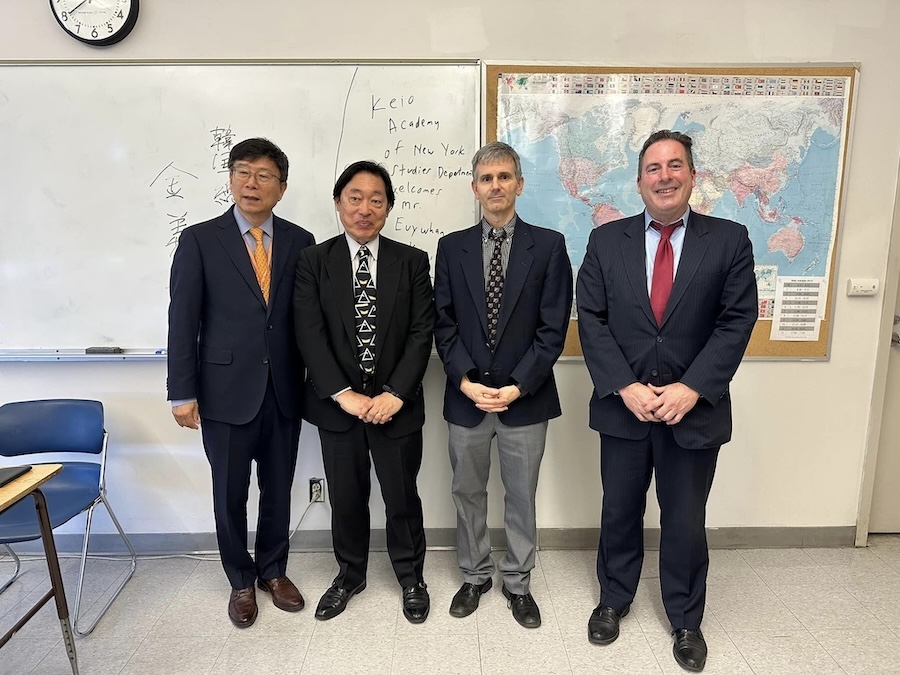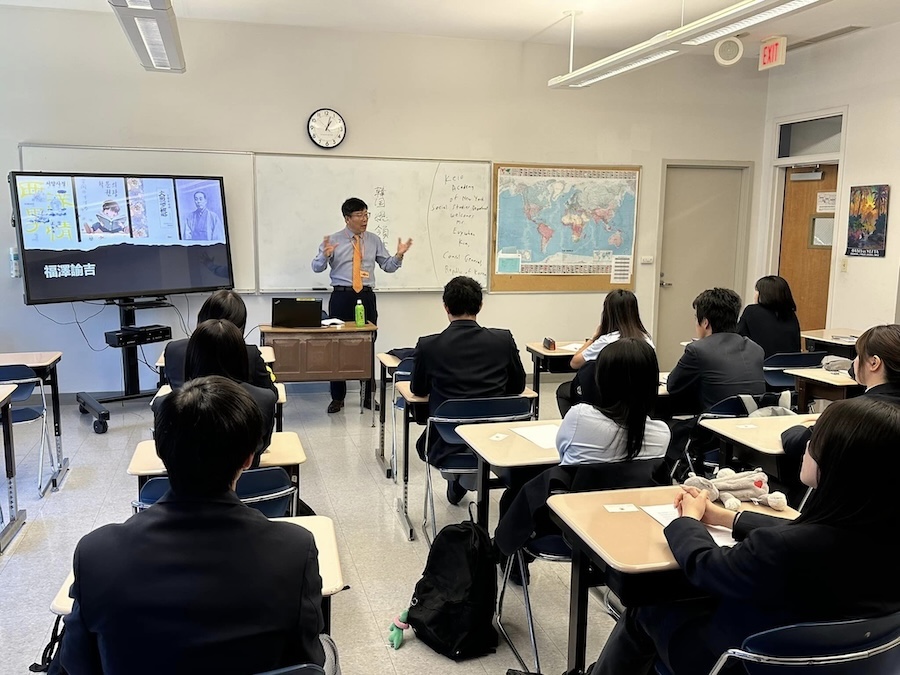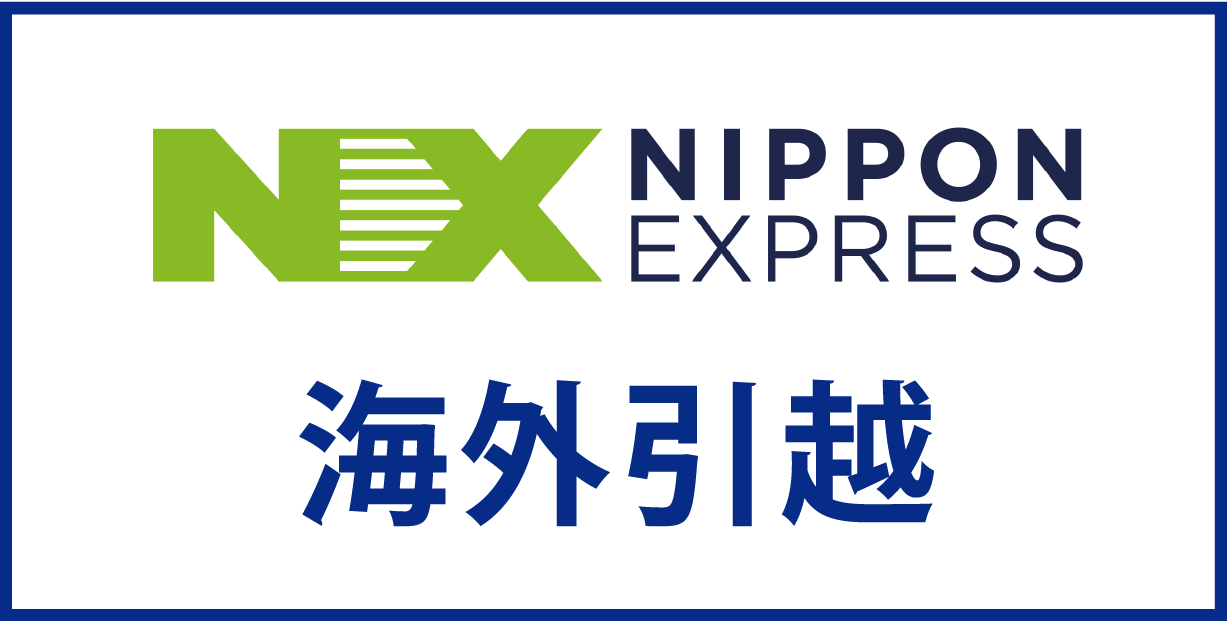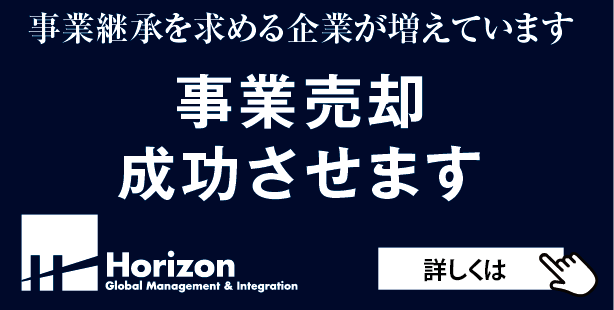Tricultural Voices from Keio Academy of New York #6
“The Comparison of Japan and South Korea in view of Globalization” November 13, 2024
At Keio Academy of New York (Purchase, NY)
Introducing Consul General Mr.Euywhan Kim’s Lecture
Tatsumi Takayuki
Headmaster, Keio Academy of New York
On October 2nd, 2024, Mr. Hidetoshi Takeda, editor-in-chief of Daily Sun New York, generously introduced me to Mr. Euywhan Kim, current consul general of the Republic of South Korea, who was involved with UNDP (United Nations Development Program) as a senior advisor on anti-corruption from 2017 through 2019.
Chatting with him, I was deeply impressed with the consul general’s deep knowledge of Fukuzawa Yukichi sensei, whose major work An Encouragement of Learning Mr.Kim read very closely. Since Keio Academy of New York, established in 1990, has proudly advocated the “Japan-U.S. Keio” tri-cultural ethos in its mission statement revised in 2022, we were thrilled to welcome him to our campus on November 13th, where he delivered an exciting lecture on the thoughts of Fukuzawa sensei in the context of globalization. As a result, Mr. Kim brilliantly captured our students’ imagination by emphasizing a couple of stimulating principles: “Leaders should be readers” and “Learn and win.”
Of course, a number of precursors have already speculated upon the significance of Fukuzawa sensei from a variety of perspectives; he has represented not only Keio Gijuku as an independent school but also modern Japan as a democratic nation. Nonetheless, Mr. Kim’s originality lies in his own project of hagiography; he reconsidered Fukuzawa sensei as comparable with major Japanese cultural giants.
In Anglo-American literary history the tradition of hagiography was modernized by Thomas Carlyle’s On Heroes, Hero-Worship, and the Heroic in History (1841), which helped reinforce Pax Britanica in the 19th century, whereas Carlyle’s work invited Ralph Waldo Emerson to compose a treatise on genius Representative Men (1850) , which paved the way for Pax Americana in the 20th century. It is notable that both Carlyle and Emerson admired Shakespeare and Napoleon as their major heroes. Likewise, following in the steps of Carlyle and Emerson, consul general Kim is ambitious enough to create his own hagiography by featuring Japanese cultural giants such as Oda Nobunaga, Kaneko Kentaro, Fukuzawa Yukichi, Matsushita Konosuke, Inamori Kazuo and Toyoda Kiichiro.
Why was he interested in the tradition of hagiography? At this point, his analogy between Pax Romana and Pax Americana will be helpful. It is self-evident that hegemonic nations have produced excellent hagiographies admiring and canonizing their own cultural giants. The early 21st century will see the first-ever East Asian Hagiography to be written by Consul General Mr. Kim. I truly look forward to reading it.

Teachers’ notes to the students following Mr. Kim’s lecture:
Hi everyone.
Thank you all for your kind attention and note taking.
Some information Mr. Kim shared that you might want to include in your remarks –
Rome and America both opened up global trade routes to link their economies and cultures with the rest of the world. Both used globalization to strengthen and grow their societies.
People wanted to migrate there for opportunity. By contrast, Russia and China built walls to keep outsiders away and as a result, both Russia and China societies contracted and suffered by comparison.
Japan opened itself up during the Meiji period to the rest of the world in order to not become a western colony. I thought this was a very interesting observation. Fukuzawa embraced the idea of Japan incorporating western ideas into Japan in order for Japan to remain independent and prosper.
Korean influence has grown in recent years with K Pop, K Beauty, K Dramas, Korean food, so that Korea is COOL. Mr Kim is very proud of Korea being a top 6 country and he attributes this to being open to globalization both coming in and going out of his country. Korean was the 7th most learned language on apps last year, for example.
A Top 6 country is defined as having over $30,000 USD in median income with over 50 million population. Only US, UK, France, Italy, Japan, and Korea are in this category. Thus globalization has been a success for these nations.
Mr. Kim also remarked on MNCs – Samsung is a top 5 global company, and the only one in the top 5 that manufactures its own products. Toyota also manufactures its own products. Top 4 global companies are Apple, Microsoft, Amazon, Google. (Apple does manufacture IPhones but they use Chinese factories to do this, not Apple employees themselves, fyi)
Korea and Japan have in common the embrace of TECHNOLOGY.
Mr. Kim ended his presentation by commenting that South Korea after WW2, in 1948 was the only capitalist country on the Asian continent – surrounded by Communist nations everywhere. So their success is largely due to an embrace of western globalization values and trade.
Please write your remarks on the shared Google doc tonight, please. I will share it with Headmaster Tatsumi tomorrow as he requested, so that he may share it with Mr. Kim, who might even write back to us with his responses. Remember to include one question for Mr Kim, please.
Thank you,
Mr. Ciafardini

Responses from a Korean Consul General to students at Keio Academy.
1. Overall Impression and Gratitude
My meeting with the students, teachers, and staff at Keio Academy last week will remain one of my most precious memories during my time in New York. Although I regret that the 45-minute lecture didn’t allow enough time for in-depth discussions with students, I’m both surprised and delighted to receive these questions, as they bring back the touching moments from that day. This kind of feedback reflects Keio Academy’s thorough and deep student guidance system. During my tenure as Consul General in New York, I hope to meet these and more Keio students again with ample time for discussion.
First, I’m grateful that all eight students accurately understood the key points of my lecture and raised relevant questions. Below are my responses to individual students.
2. Consul General’s Responses
1) Response to Chang Ying and Ayano Nitta
(Summary) Both questions are premised on historical background, so I’ll provide a brief historical review of Korea-Japan-China relations, along with future prospects and the importance of cultural cooperation.
As you know, while Korea, Japan, and China are broadly classified within the Confucian cultural sphere, Japan’s geographical separation by sea from Korea and China has led to its development as a unique maritime Confucian culture. Like other countries, these three nations have influenced each other both positively and negatively throughout their periods of development and decline. Unlike Korea, which had to endure numerous invasions and overwhelming Chinese influence, Japan experienced direct Chinese interference only twice through Mongol invasions in the 13th century. In the context of 2000 years of Chinese-related history, Korea’s preservation of its ethnic identity, language, and unique culture stands out, especially when compared to other nations bordering China that have disappeared. Regarding Korea-Japan relations, it’s true that even Koreans who didn’t live through the 36-year colonial period still harbor negative feelings toward Japan, due to this indelible humiliation from the early 20th century.
After the Meiji era, Japan’s rapid modernization led to it replacing China’s dominant position among the three East Asian nations, achieving equal status with Western powers. Between these two powerful nations, Korea’s emergence as a global economic and cultural power in the 21st century while maintaining its unique culture and traditions can only be described as miraculous.
Therefore, the future of these three nations lies with young people like you. Consider the American Revolution – 25,000 American independence fighters were killed by the world’s strongest British army at the time. Even after independence, Britain attacked America in 1812, burning Washington D.C. Based on these facts alone, one might think America and Britain could never reconcile. However, today they are allies leading the world’s democratic and market economic systems.
If we only dwell on past grievances and hatred, everyone becomes an enemy. But if we think about a better future, we can all become friends because we will live in the future. Since Korea and Japan share the values of liberal democracy and market economy, there will be many opportunities for future cooperation. Young people from both countries should maintain an objective and rational attitude toward historical facts without becoming trapped in the past like older generations. They should foster healthy competition and cooperation in economics, culture, security, education, sports, and many other fields. While China has a different political system from Korea and Japan, mutual cultural respect and cooperation will yield positive results. In this regard, I’m confident that Korean culture, symbolized by today’s K-Culture, can brighten the future of Japan, China, and Korea.
2) Response to Rio Kato
Korea’s ranking as 6th in comprehensive national power reflects both economic and military strength. However, having mandatory military service doesn’t mean Korea’s defense capabilities are stronger than Japan’s. Korea needs to maintain strong military forces to counter the North Korean communist army, which constantly threatens to communize Korea through military force. Military service exemptions are not available for entertainers, including idols, and are only granted exceptionally to those who win Olympic gold medals or make significant contributions to the nation.
3) Response to Chitose Tsuruga
I respect Fukuzawa both through his writings and life. While I don’t have any unique research about him unknown to Japan, I was particularly impressed by the following aspects of his philosophy:
In 1860, Fukuzawa sailed to America aboard the Kanrin Maru under Captain Katsu Kaishū. After crossing the Pacific to San Francisco, he experienced American ‘civilization’ firsthand for about a month. Interestingly, what he found most difficult to understand wasn’t the ‘physical sciences’ like machinery, physics, and industry, but rather human aspects like laws, politics, customs, and society. He was particularly intrigued that American citizens showed little interest in George Washington’s ‘family lineage.’ While in Japan everyone knew about the Tokugawa family and understood why their descendants held positions of power, in America, being Washington’s descendant didn’t grant special respect or authority. This social structure and people’s mindset was the biggest shock to Fukuzawa, and undoubtedly sparked his strong desire to ‘enlighten’ people.
After experiencing Western civilization in America and Europe, he observed that the East lacked two things: ‘mathematics and physics’ in tangible terms, and ‘independence of spirit’ in intangible terms. He made these two elements the fundamental principles of education.
He criticized the feudalistic notion that ‘government is noble and citizens are base,’ asserting that individual citizens should possess self-respect and independent spirit.
In the seventh chapter of “An Encouragement of Learning,” he strongly criticized Japan’s traditional lord-vassal relationship, arguing that acts like sacrificing one’s life for one’s lord, seeking revenge, or committing ritual suicide on command were uncivilized and meaningless. While this seems obvious today, his criticism was shocking in a society that had only recently emerged from the shogunate era emphasizing loyalty.
He viewed Western history as a progressive march toward human freedom, intellectual virtue, and acceptance of pluralistic values, while seeing Japan as stagnating at a historical stage where individuals lost their autonomy under powerful authority. He claimed that ‘Japanese history is merely the history of its government, not of its people.’
4) Response to Mikako Furukawa
It’s true that 99.9% of Korean businesses are SMEs, with large corporations making up only 0.1%. However, Korea’s global conglomerates like Samsung, Hyundai, SK, LG, and Lotte, including their subsidiaries, comprise about 3,000 diverse major companies with global competitiveness, leading in nearly all manufacturing sectors including semiconductors, ICT, steel, automotive, chemicals, oil refining, plant construction, electronics, shipbuilding, and construction. Unlike Japan, Germany, France, and Italy, where SMEs have developed over 100-300 years of history, Korea achieved economic growth through export-driven heavy industry conglomerates. Rather than viewing Korea’s large corporation dominance negatively, it should be recognized that Korea’s remarkable economic development – achieved without natural resources, technology, industrial revolution experience, and despite colonization and the devastating Korean War of 1950-53 – was possible because of successful large corporation policies. Young people strive to join these large corporations and take pride in Korean conglomerates.
5) Response to Mao Miyake
Among all excellent students, Miyake’s writing composition and reflection on my lecture are exceptionally outstanding. I would very much like to meet and talk with you again.
6) Response to Hirotaka Nagamatsu
The 6th place ranking in comprehensive national power was announced by the Wharton School, UPenn, and US News & World Report.
The 7th place ranking of Hangul was reported by CNN on December 17, 2022.
7) Response to Miina Ishikawa
K-Culture couldn’t have spread globally so quickly without Netflix and YouTube. However, the mere existence of SNS and media doesn’t guarantee worldwide popularity for all cultures. This is key to understanding the phenomenon. Korean culture’s appeal lies in its unique characteristics combined with universal elements that other cultures can relate to. Korea needs to continue focusing on these aspects moving forward.
Teachers’ concluding remarks:
As a teacher at KEIO Academy of NY, it is gratifying to be able to deliver to the students a core component of our founder’s philosophy, Fukuzawa Yukichi sensei, of experiential learning. In our 12th grade class, our curriculum consists of discussing the interdependence of nations in the process of globalization. We review the pros and cons, who benefits and who does not, but it is all academic until we are able to consider the point of view of someone who actually works day to day in the real world of globalization. Therefore it was with great pleasure to welcome Korean General Consul Kim to our classroom.
I watched with satisfaction the way our students were able to synthesize the concepts we discuss in class with the real life research and experiences of Mr. Kim. His talk focused upon the effects of embracing a pro-western and pro-globalization posture that the Republic of Korea has embraced to their benefit since the mid-1940s. Mr. Kim was also able to juxtapose that embrace with the path of Japan, and that overlap that both benefits both nations and also has caused conflict between the two nations.
As an educator, seeing our students write notes, think critically, and be able to both absorb the information from Mr. Kim and then be able to ask follow up questions and receive answers is invaluable. This process serves as the best possible way for them to grow, learn, and above all, experience and understand the concepts that continue to affect the world they will soon inherit.
-Dominic Ciafardini
Social Studies Faculty, Keio Academy of NY













